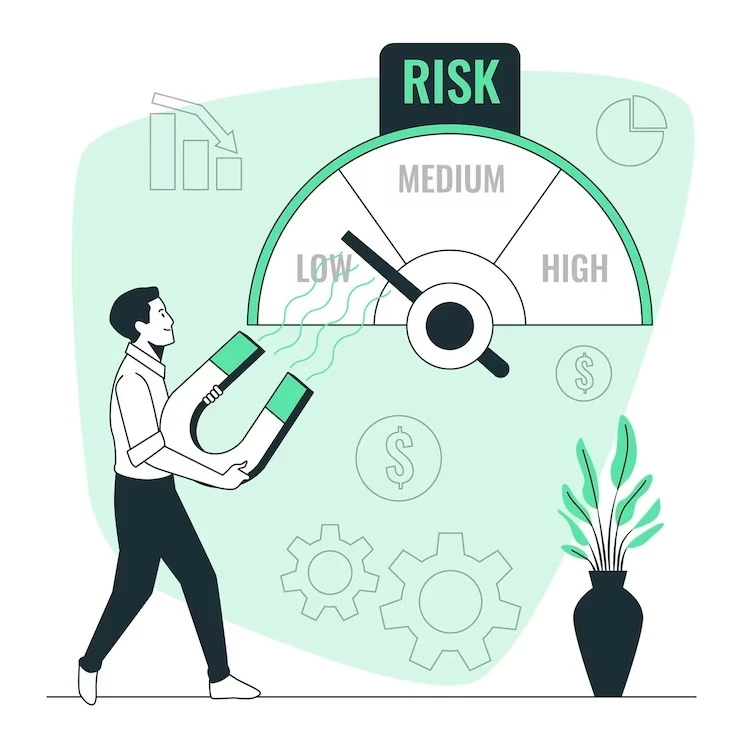
AI Software Development Outsourcing : Risks and Mitigation Strategies
Introduction
In today’s fast-paced technological landscape, many companies are turning to AI software development outsourcing to leverage the expertise and resources of external vendors. Outsourcing can offer numerous benefits, such as cost savings, access to specialized talent, and accelerated development timelines. However, it’s crucial to be aware of the risks associated with AI software development outsourcing and implement effective mitigation strategies to ensure project success.
Risks of AI Software Development Outsourcing
Outsourcing any software development project comes with inherent risks, and AI projects are no exception. Understanding these risks is the first step in effectively managing them. Let’s delve into some of the key risks associated with AI software development outsourcing and discuss how to mitigate them.
Risk 1: Intellectual Property Protection
Outsourcing AI software development exposes companies to the risk of intellectual property (IP) theft or infringement. Confidential algorithms, datasets, or proprietary models may be compromised, leading to significant financial and reputational damage.
Mitigation Strategy: Prioritize thorough due diligence when selecting an outsourcing partner. Ensure they have robust security measures in place to safeguard your intellectual property. Additionally, establish comprehensive legal agreements, including non-disclosure and confidentiality clauses, to protect your IP.
Risk 2: Communication and Collaboration Challenges
Effective communication and collaboration are vital for successful software development. When outsourcing AI projects, companies may face challenges due to language barriers, cultural differences, and geographic distances, leading to misinterpretation, delays, and subpar deliverables.
Mitigation Strategy: Choose an outsourcing partner with a proven track record of effective communication. Establish clear communication channels, such as video conferencing and project management tools, to facilitate regular updates and discussions. Additionally, foster cultural understanding and bridge any language gaps through effective translation and documentation processes.
Risk 3: Quality Assurance and Performance Issues
Maintaining high-quality standards and ensuring optimal performance of AI software can be challenging, especially when outsourcing development. Inadequate testing, lack of expertise, and insufficient quality assurance processes may result in substandard or underperforming AI solutions.
Mitigation Strategy: Define comprehensive quality assurance and testing protocols as part of the project requirements. Conduct regular code reviews, test iterations, and performance evaluations to identify and rectify any issues promptly. Collaborate closely with the outsourcing partner to align on quality expectations and ensure adherence to best practices.
Risk 4: Data Privacy and Security Concerns
AI software development often involves handling sensitive data, such as personal information or proprietary datasets. Outsourcing these projects without adequate data privacy and security measures can lead to data breaches, regulatory non-compliance, and legal ramifications.
Mitigation Strategy: Prioritize data privacy and security throughout the project lifecycle. Ensure the outsourcing partner complies with relevant data protection regulations, such as the General Data Protection Regulation (GDPR). Implement encryption, access controls, and robust data handling practices to safeguard sensitive information.
Risk 5: Lack of Domain Expertise
Developing AI software requires domain expertise in both AI technologies and the specific industry or business domain. Outsourcing to a partner lacking the necessary knowledge and experience can result in suboptimal solutions that fail to meet business objectives.
Mitigation Strategy: Evaluate the outsourcing partner’s expertise in both AI technologies and the target domain. Look for previous successful AI projects within your industry. Conduct thorough interviews and assessments to gauge their understanding of your business needs and ensure alignment with your goals.
FAQ’s
Q. What are the risks involved in AI software development outsourcing?
A. The risks associated with AI software development outsourcing include intellectual property theft, communication and collaboration challenges, quality assurance and performance issues, data privacy and security concerns, lack of domain expertise, and dependency on the outsourcing partner.
Q. How can I ensure effective communication and collaboration when outsourcing AI development?
A. To facilitate effective communication and collaboration, choose an outsourcing partner with a proven track record of effective communication. Establish clear communication channels such as video conferencing and project management tools. Foster cultural understanding and bridge language gaps through effective translation and documentation processes.
Q.What measures can I take to mitigate quality assurance issues in AI software development outsourcing?
A. Define comprehensive quality assurance and testing protocols as part of the project requirements. Conduct regular code reviews, test iterations, and performance evaluations. Collaborate closely with the outsourcing partner to align on quality expectations and ensure adherence to best practices.
Q. How can I address data privacy and security concerns when outsourcing AI development?
A. Prioritize data privacy and security throughout the project lifecycle. Ensure the outsourcing partner complies with relevant data protection regulations such as GDPR. Implement encryption, access controls, and robust data handling practices to safeguard sensitive information.
Q. What can I do to mitigate the risk of lack of domain expertise in AI software development outsourcing?
A. Evaluate the outsourcing partner’s expertise in both AI technologies and your specific industry or business domain. Look for previous successful AI projects within your industry. Conduct thorough interviews and assessments to gauge their understanding of your business needs and ensure alignment with your goals.
Conclusion
By implementing these mitigation strategies, businesses can minimize the risks and maximize the benefits of AI software development outsourcing. The key lies in selecting the right outsourcing partner, fostering effective communication and collaboration, setting clear expectations, and continuously monitoring and evaluating the project’s progress.
Liked this blog? Sign up for our exclusive AI monthly newsletter.
Previous articles

AI 2024: Predictions and Advances in Artificial Intelligence
There’s no doubt 2023 was a landmark year for AI technologies. From healthcare to customer service and beyond, AI transformed the way the average person communicates, works, and solves complex problems. In this article, we’ll delve into the advances and breakthroughs achieved in AI development, as well as the opportunities and challenges that lie ahead […]

AI Call Centers: Turning Customer Support into Customer Experience
When a customer contacts an AI-enabled call center, two things can happen: The customer leaves satisfied with the interaction Their issue is not resolved and they leave with a negative association of your brand Keeping customers satisfied relies on the appropriate use of AI in call centers. This often means centering AI automation as a […]